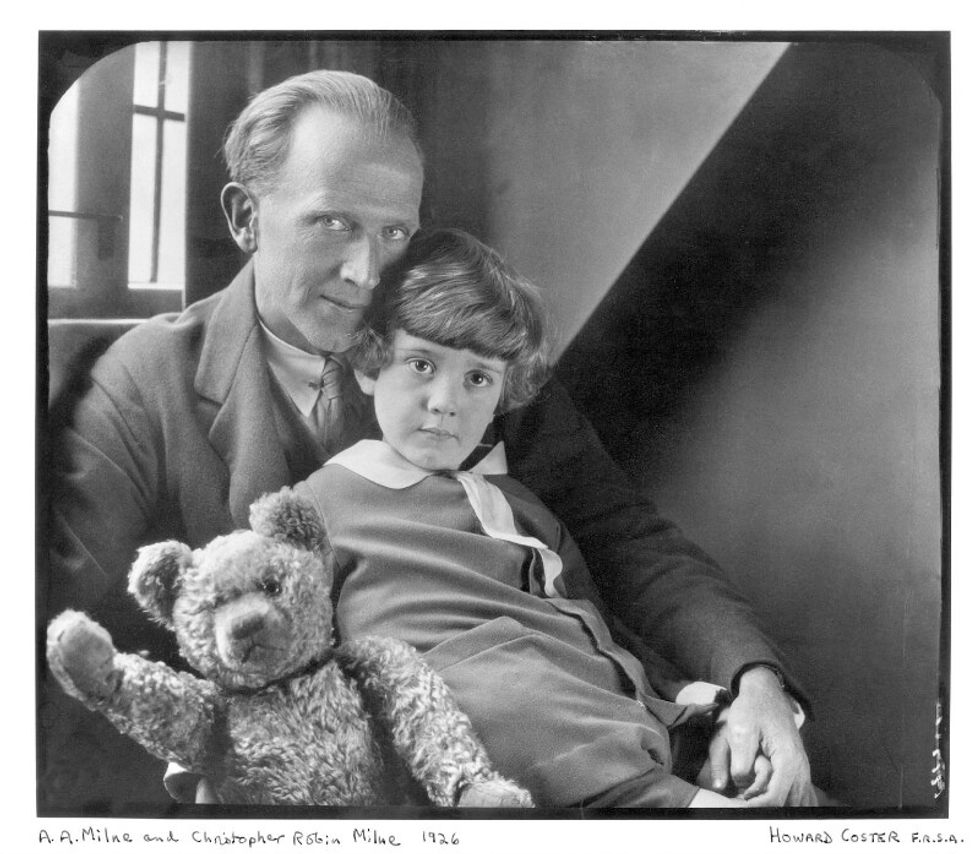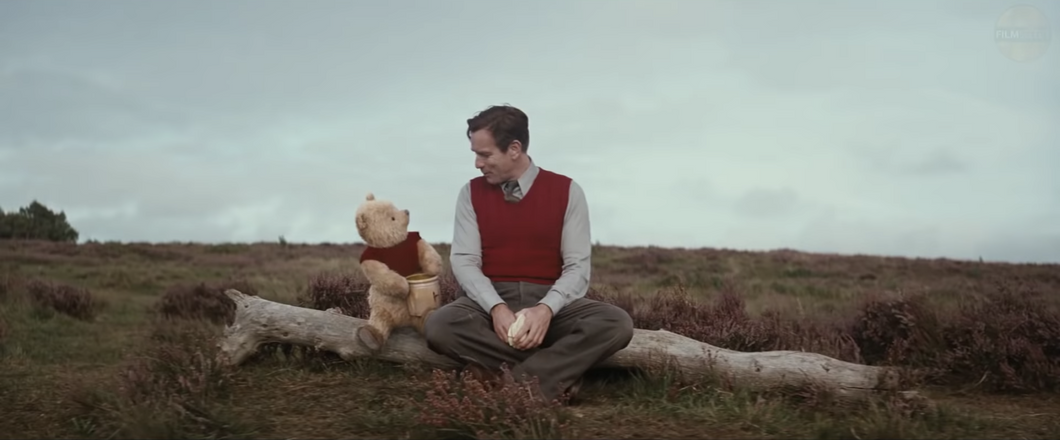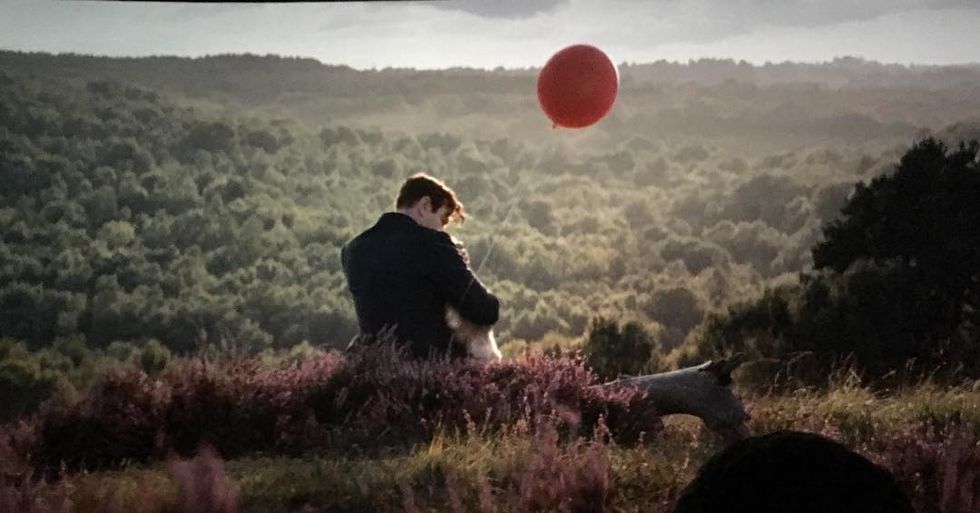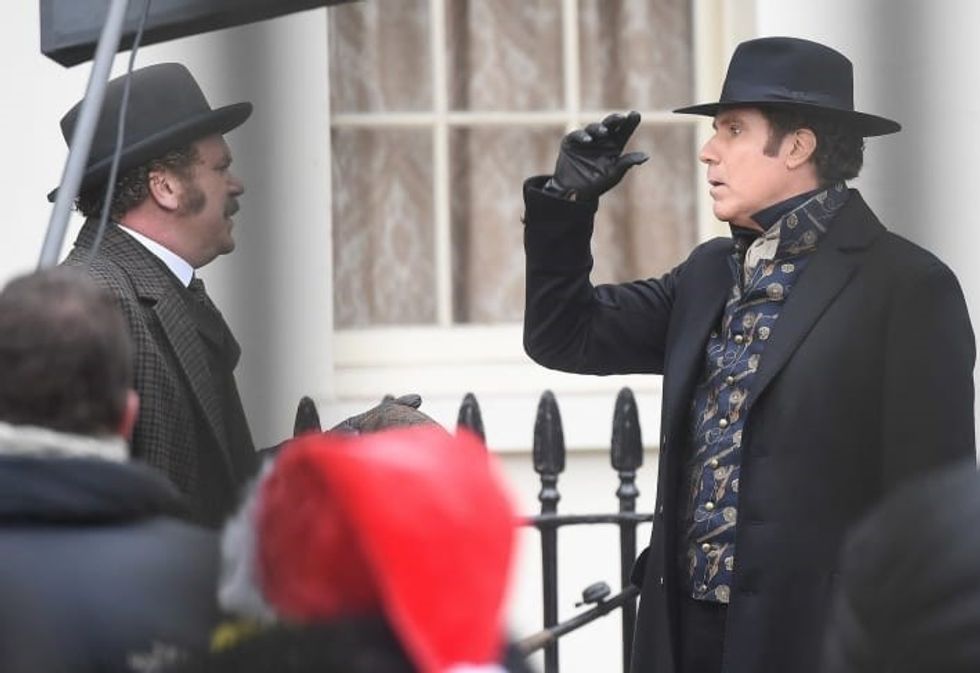I Felt Guilty Watching 'Christopher Robin'
Remember, this is coming from the girl who would wake up early for preschool just to watch "Winnie-the-Pooh."
What started as a father writing a book based on his son and his favorite toys has turned into the most beloved and recognizable bear in the world. However, what comes across as a loving father's gift to his son isn't that simple.
"Winnie-the-Pooh" has been a household name since he first appeared in the poem "Teddy Bear" in 1924 and the full-length book, "Winnie-the-Pooh", in 1926, both by A.A. Milne. The Hundred Acre Wood has been on everyone's mind this summer with the release of the highly anticipated "Christopher Robin" at the beginning of August. But what most moviegoers don't realize, this is, in fact, the second movie based on the real-life "Christopher Robin" released in the last 10 months.

Last October audiences had the chance to enter the world of the Milnes when "Goodbye Christopher Robin" was released. The movie tells the real-life story of Alan and Daphne Milne along with their son Christopher. The movie does an exquisite job of displaying Alan's struggle to resume his career as a writer after his return from WWI. Although it went by another name, it was obvious (to the audience, at least) he struggled with PTSD.
Alan never really got back into the swing of writing until he moved his family out to the countryside in Sussex right by a 500-acre wood (the inspiration behind the Hundred Acre Wood). It was here that he was finally able to bond with his son. Christopher's parents are the ones who really inspired the "Winnie-the-Pooh" stories since they bought the toys and helped bring them to life when Christopher was younger.
In "Goodbye Christopher Robin" once the book was published, it shows Mr. and Mrs. Milne as some of the first stage parents. They paraded Christopher around to different interviews and appearances, while it was only his nanny, Nou, who noticed the strain it put on Christopher. Although Nou was a real and huge part of the first 10 years of Christopher's life, his mother wasn't as horrible as the movie made her seem. She also had a crucial part in creating the "Winnie-the-Pooh" stories as well.
However, his parents were most definitely not parents of the year. (I mean they did make their son take a picture next to the real bear "Winnie-the-Pooh" got his name from). Christopher later recalled how Alan was always off working and never truly present, while his mom always held a grudge since she desperately wanted a daughter.
This issue never really resolved itself since Christopher started at boarding school at the age of nine. As he got older Christopher was able to bond some with his father over school work and serving his country in WWII. This is why Christopher continued to visit his father up until Alan's death in 1956 but then never saw his mother again.
Due to their strained relationship, Christopher never really enjoyed being tied to his namesake "Christopher Robin." Once he was old enough to go to school, he quickly learned that it wasn't cool to be the little boy in a children's story. He was able to come to terms with the fact he was "Christopher Robin", but he chose not to associate with that part of his life.
Once Christopher was married and had a life of his own, he opened his own bookstore. (Don't lie, I can't be the only one wondering if he sold the "Winnie-the-Pooh" books.) He relied on his own business since he never took a penny (or a pence) of the "Winnie-the-Pooh" money.
He didn't want the money, he donated the toys and gave away the rights as soon as he could. Since Christopher's only daughter, Clare, was born with severe cerebral palsy, once she received the "Winnie-the-Pooh" royalties the "Clare Milne Trust" was founded (with the help of her mother).
Personally, I find it sad that due to the popularity of "Winnie-the-Pooh" a young boy lost a bond not just with his parents, but also his favorite toys. I could never imagine giving up my Dolly so she could be put in a glass case. I would like to believe the memories made while writing the books were genuine and not just for his father's career, but now it's almost hard to tell.
Now knowing the pain it caused Christopher and how sometimes he wished it could all go away, it makes the huge commercial success of the franchise seem wrong. This boy's games, stories, toys, and memories are now something much bigger.
Unfortunately, no matter what Christopher wanted, "Winnie-the-Pooh" is forever going to be a household name. A.A. Milne never intended for this impact and for those reasons, I won't regret watching or reading these stories, but I don't know if I'll be able to look at good old Pooh bear the same way.
Hopefully, Disney continues to honor "Winnie-the-Pooh" the same way they've always done for more generations to love. And all in all both movies were quite enjoyable and well done, but very different. I highly suggest watching "Goodbye Christopher Robin" first in order to understand more about the Milnes before viewing the Disney's what-if scenario in "Christopher Robin."
*The name Christopher Robin appears in quotes when talking about the movie and the character in order to highlight the difference between the real-life boy (who was never referred to as "Christopher Robin" prior to the books).


























